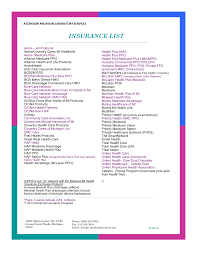
Sometimes, healthcare definitions can be confusing. Luckily, the following information has been compiled to help you navigate the process.
An exclusive provider organization (EPO) is a health plan that combines features of a HMO and a PPO. This type of plan stores medical records electronically. Therefore, you will only need access to providers within your network. You'll pay more for care outside your network. You could also be subject to a higher price share.
A health maintenance programme (HMP) covers all medical expenses. This includes deductibles, coinsurance, as well as copayments. Your benefits will not be dependent on the network you have, unlike a PPPO. Your insurance will only cover services provided if you see a provider not in the network.
The Patient as a Partner Approach is a way of engaging patients in the healthcare process. It recognizes that patients' experiential knowledge is as important as the HCP's scientific knowledge. Patients are encouraged and supported to take an active part in their care. Patients may also be able to call a doctor and get a second opinion.

Electronic Medical Records (EMRs are computerized records that store all of your medical data. They are typically used to monitor and record your health care, with a deductible or copayments.
Behavioral healthcare is a term that refers to a range of treatment options for substance and mental abuse. These include counseling and medication management. Both ambulatory and hospital emergency rooms can offer behavioral healthcare.
Electronic prescribing is a way for pharmacies to electronically share patient information. Electronic prescribing uses computerized systems for transferring prescription information from the doctor's office into a pharmacy.
Insurers might review your claims before they pay them. If the claim meets these standards, the insurance company will reimburse you. Some insurance plans require preauthorization or precertification before you can receive certain procedures.
HIPAA, or the Health Information Privacy Act, aims to create standardized security standards for sharing sensitive information. It is enforced through the Department of Health and Human Services and Centers for Medicare and Medicaid Services.

The Affordable Care Act (ACA) requires most health plans to provide four basic levels of coverage. These levels are determined by your household's income and dependents as well as the assistance provided by the government.
Your annual deductible covers your healthcare costs for the entire year. For instance, if you have an accident or suffer from a major illness, your deductible limits the amount of healthcare that you can spend before your insurance kicks in. The deductible does not cover non-covered services like visits to doctors or hospitals that are not part of your insurance network. Your deductible does not apply to hospitalizations. It only covers the cost of care you receive while you are there.
Finally, your HSA (health savings account) allows you to use your money to pay for healthcare costs that your insurance does not cover. HSAs, which are tax-advantaged savings accounts, can be used by you to pay for services that aren't covered by your health insurance.